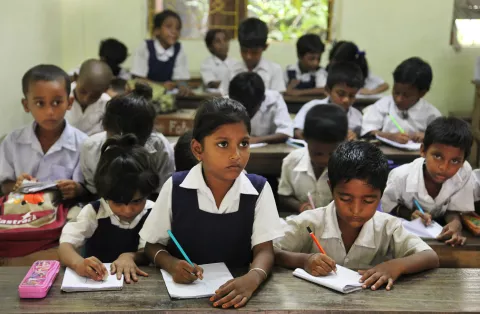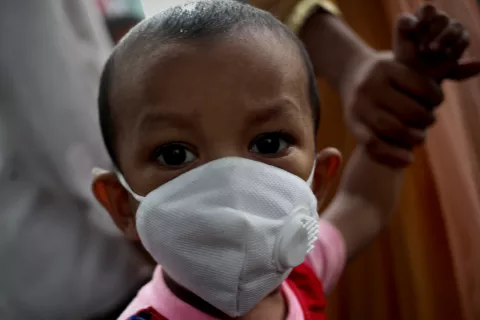Working Together to Leave No Girl Behind
Reflections from an Online South Asian Knowledge Exchange
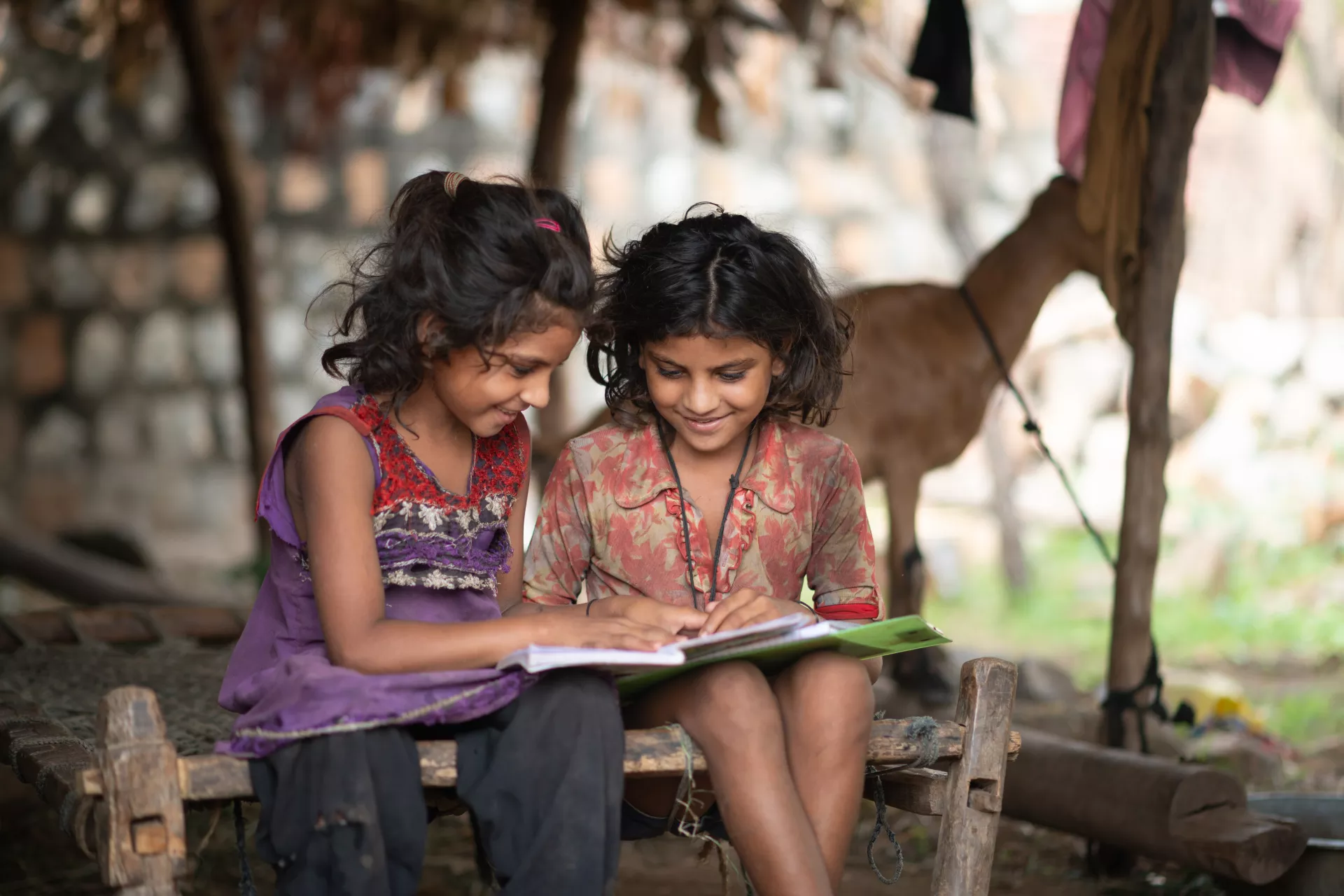
The Challenge
A common proverb that the DFID UK Girls Education Challenge (GEC) and UNICEF Regional Office South Asia (ROSA) have been road-testing goes along the lines:
If you want to go fast, go alone. If you want to go far, go together’ - African Proverb
What we have learned is that it takes many partners to get the job done!
We started our journey together in 2019, with trusted partners from the University of Cambridge and Humanity & Inclusion, to operate a conference in Kathmandu, Nepal: Education for Children with Disabilities in South Asia through research, policy and advocacy: A South Asian Regional knowledge exchange. We gathered public sector educators, non-state actors, researchers, persons with disabilities organisations and donor agencies to share and learn from one another, focusing in particular on how countries may transform their education systems and progressively realise disability inclusive education.
We shared our approaches and 2019 findings on Inclusive Education here, and emboldened from the positive feedback, we were in the early stages of planning a similar collaboration Leave No Girl Behind Education Alternatives, Tackling Violence and Changing Norms when the COVID-19 pandemic struck, making a physical face-to-face event in South Asia impossible.
Globally, 130 million girls will not attend school. Nearly all of them live in low-income countries, where girls are still one and a half times more likely than boys to be excluded from primary school. In South Asia, 46 million girls were out of school in 2016, with some communities experiencing major disparities in enrolment and literacy rates - reflecting fragility, shortages of girls’ secondary schools and restrictive social and cultural norms. And this was before the COVID-19 pandemic’s impact, which may push out a further 20 million secondary school age girls. Educating girls helps to unleash a demographic dividend by reducing poverty, increasing productivity, and cultivating future business owners, scientists and world leaders.
Diverted by the circumstances, we set about to put on a virtual collaboration consisting of four weekly online Zoom webinar sessions. Whilst we have been on a steep learning curve in creating and delivering engaging sessions through new technologies, the ability to connect with hundreds of people across multiple countries and operate at a close to zero financial or carbon footprint cost has proven incredibly rewarding. Feedback from a ‘Zoom poll’ in the final session indicated that nearly all participants felt the sessions were informative and enjoyable, and they particularly enjoyed the opportunity for long discussion and Q&A time. Additionally, participants were very eager to receive the slides packs, which can be viewed in the session links.
What We Shared and Learnt
The first session was opened by the UNICEF Regional Director for South Asia who spoke broadly about gender disparities in the region and priorities for South Asia. In this session we reflected on how programmes that target marginalised girls are adapting to lockdowns and school closures during the COVID-19 pandemic, with emerging lessons from the GEC portfolios in Asia and Africa. The Director of the GEC outlined five domains that were being included in all responses to support girls’ security and progression. To maintain attendance and prevent drop out, many GEC projects have already developed local-level community retention systems, which have proven invaluable as lockdowns rapidly shut schools and classes.
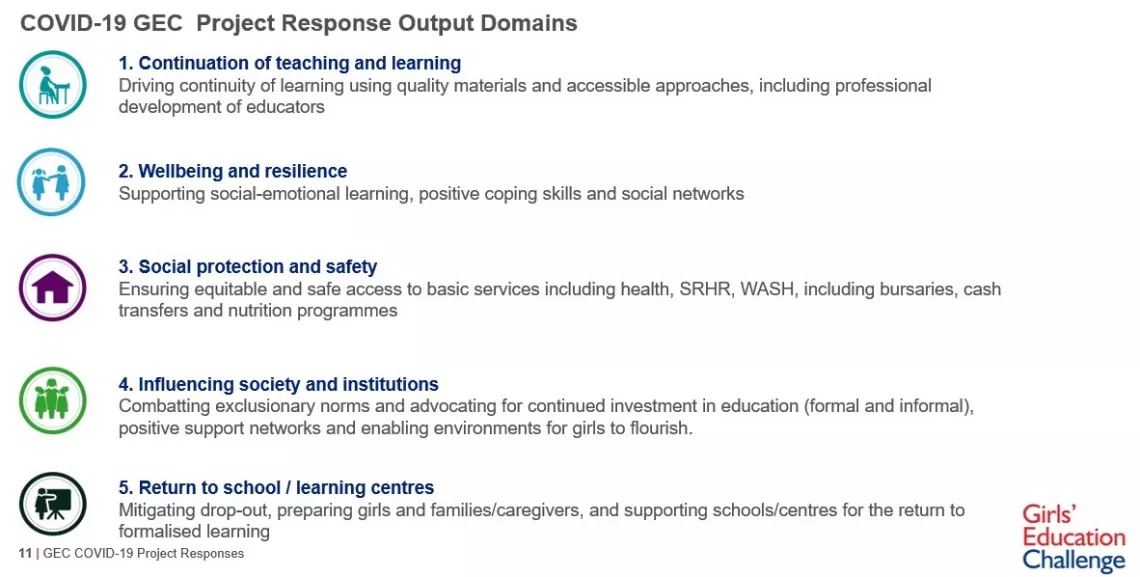
A successful engagement in Punjab, Pakistan Siyani Sahelian was presented by Idara-e-Taleem-o-Aagahi covering both their pre and post-pandemic models. They shared about the rapid pivot made in their programming to exploit new content and technology to continue operations and keep in touch with students during school closures. The Director of UNGEI introduced five inspiring female youth activists from South Asia who articulated their perspectives and challenges, and finally UNICEF ROSA outlined a conceptual framework for Gender Responsive Education in the context of COVID-19. The schematic below is being fleshed out and will be developed into a full paper using examples and materials from the webinar sessions to illustrate best practice and promising approaches.
“This is our opportunity to reform our education systems. To ensure that a gender-responsive approach to learning is included, so that our out-of-school girls are not left behind.” – Youth Representative from South Asia
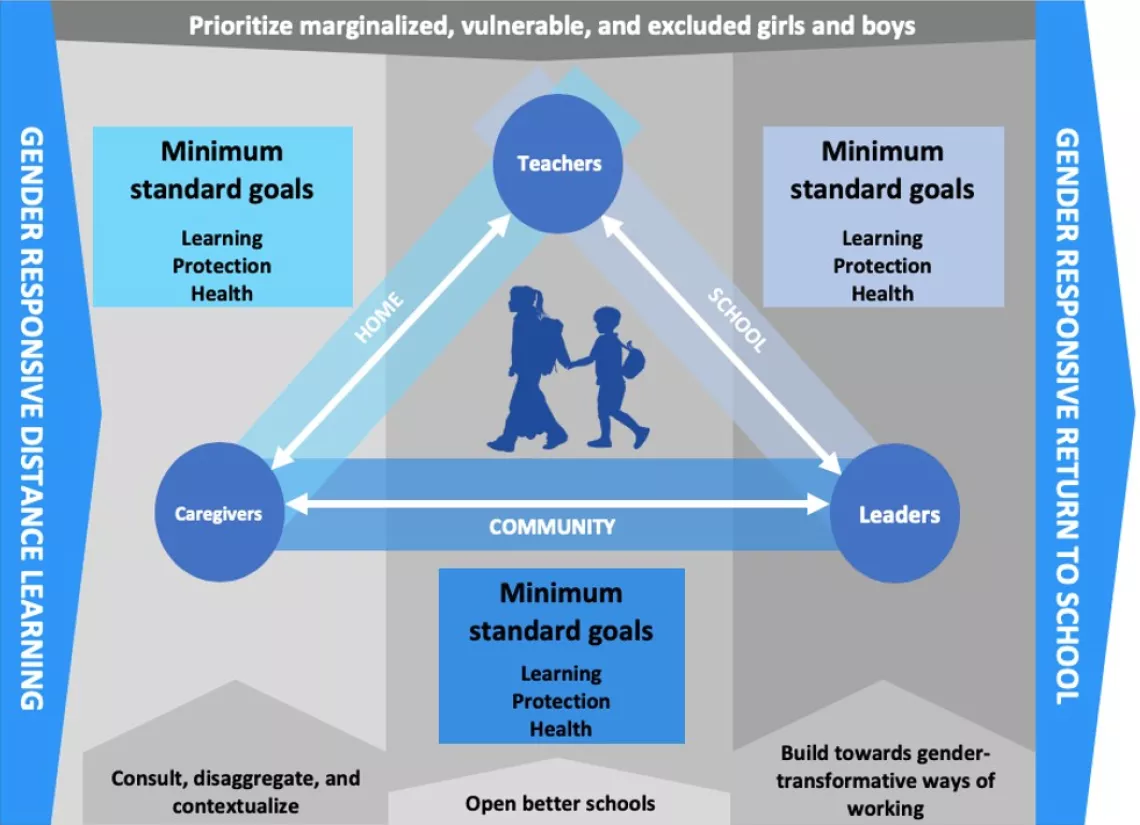
The second session covered violence in school and gender-based violence (GBV) more broadly. GBV is increasingly being recognised as a massive problem that inhibits children, especially girls, to progress in school, learn and prosper, with enormous social and financial consequences. GBV also impacts teachers and must be tackled through a whole school approach. The GEC presented Learning without Fear: Strategies to address violence in schools, with important emerging themes around the need to directly engage with boys and men in both schools and the community to confront negative stereotypes and harmful masculinities. There were also presentations from UNICEF ROSA on the South Asia study of School Related GBV, followed by the Joint Secretary from Nepal leading discussions around the Safe to Learn coalition’s diagnostic survey of policy and practice regarding violence in and around school in Nepal.
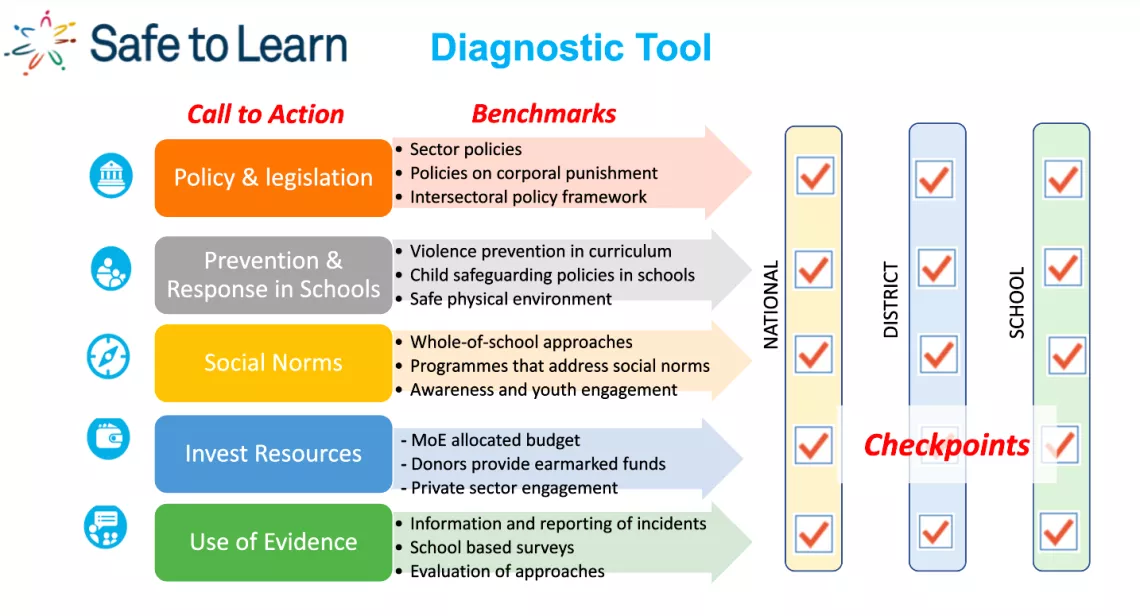
The third session focused specifically on Afghanistan, with its acute conflict and socio-cultural factors that have inhibited girls’ education in recent decades being addressed through a successful response in Community-Based Education (CBE) that is being backed by government and donors to rapidly expand opportunities. UNICEF ROSA presented data profiles and barriers faced by Adolescent Girls in Afghanistan, which was followed by a presentation from the Ministry of Education Director, Afghanistan, who outlined the success of CBE and the framework to ensure that CBE programmes remain sustainable and can be further scaled-up within the country. The GEC Steps Towards Afghan Girls’ Education Success (STAGES) project in Afghanistan presented the gender analysis undertaken by the project in adapting its response to COVID-19. The session was closed with a presentation from UNICEF Afghanistan on CBE in practice and was followed by a lively discussion among participants and the presenters of session three.
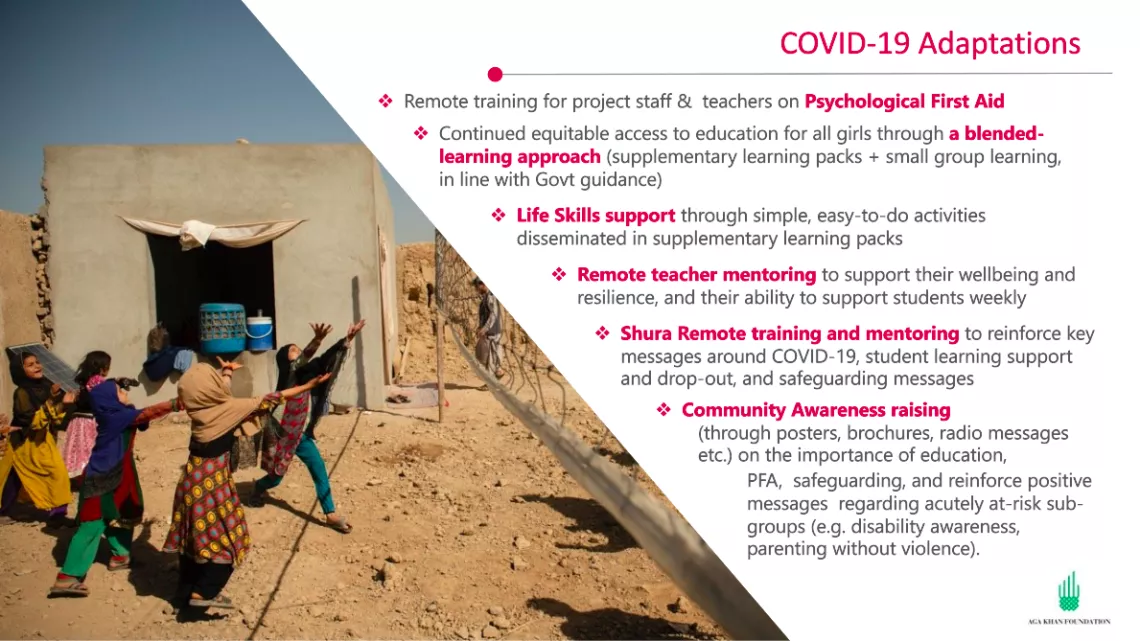
The series wrapped up with a fourth and final session focusing on Skills Building, School to Work Transitions, and Girls’ Empowerment. According to the ILO, prior to COVID-19 the youth labour force participation rate for females in South Asia is significantly lower than neighboring regions in Asia and the Pacific, at 14 per cent – far behind the global average of 32 per cent. This figure highlights the importance of tackling the female youth employment crisis, particularly given the impacts of COVID-19 on education, employment, economy and livelihoods.
To kick off the fourth session, DFID Pakistan’s Head articulated the UK’s commitment to step up work on girls education in South Asia, noting the large gender disparities in adult literacy and labour force participation that still hold back progress.
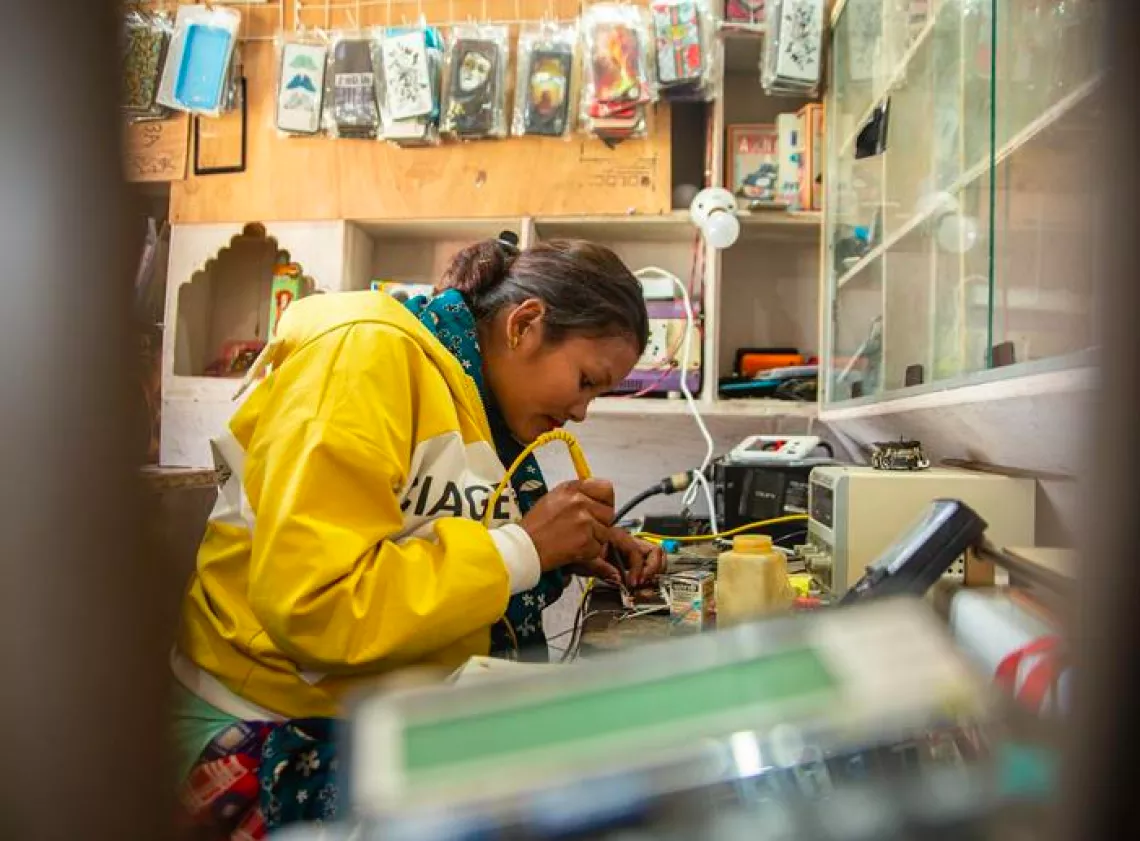
The GEC STEM-II programme described how to provide micro-finance and target self-efficacy, financial and vocational skills to enable former bonded servants to establish businesses and prosper. Key building blocks to designing essential programming for adolescent girls during COVID-19 are summarised in this GEC/Brooking/GAGE life skills framework. UNICEF ROSA presented on Skills4Girls global research and the regional UNICEF Girls-Centered, Skills-Building and Empowerment programme which includes a focus on building skills in the fields of Science, Technology, Engineering and Mathematics (STEM) and positive gender socialization. This was followed by the director of WiSTEM Nepal, who discussed their hands-on programme which aims to introduce adolescent girls to skills and careers in the STEM or STEAM (including A for Arts) fields.
The second half of the session started with an overview of the work of Generation Unlimited (GenU), a global multi-sector partnership which aims to modernize secondary education and training to build the skills young people need for productive lives, engaged citizenship, and employment. GenU also aims to engage young people as agents of social change. The session concluded with a presentation by UNICEF Bangladesh on the successful Alternative Learning Program (ALP) for the most vulnerable adolescent girls through informal apprenticeship in Bangladesh.
Concluding thoughts
Will physical meetings and conferences ever be the same again, as the COVID-19 pandemic morphs into a new normal? We think it’s perhaps too early to judge, but the importance of harnessing new, collaborative ways of working and technology will only increase. Not only for sharing knowledge and effective development practice, but more importantly to help the millions of disadvantaged South Asian girls who urgently need support and opportunities to improve their lives through education and empowerment.
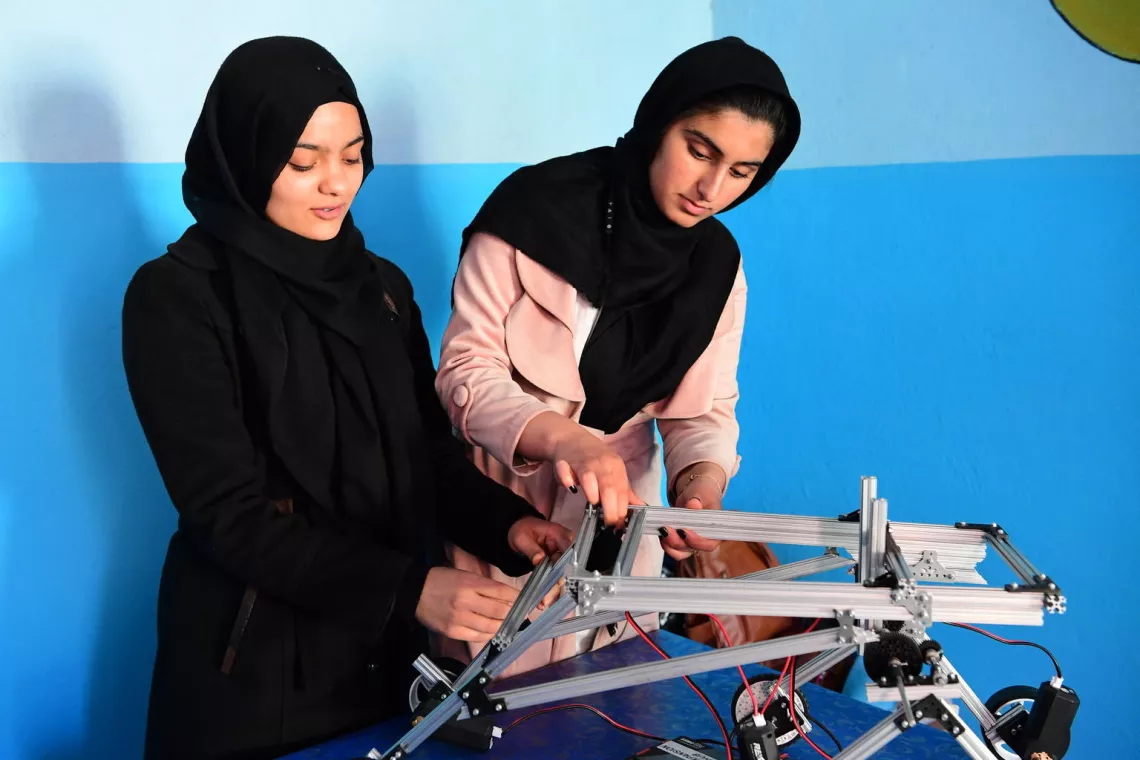
Authors
Maha Muna, UNICEF ROSA Regional Gender Adviser; Ian Attfield, DFID Senior Education Advisor; & Frank Van Cappelle, UNICEF ROSA Education Specialist
Additional Resources:
- Leave No Girl Behind Webinar Series (July/August 2020)
- Overview of the Series
- Week 1: Alternative Education Approaches and Gender Equity in the COVID-19 Response
- Week 2: Understanding Violence, Safety and Protection for Girls
- Week 3: Afghanistan: Community-Based Education (CBE) and Equity Issues around Girls’ Education
- Week 4: Skills Building, School to Work Transitions, and Girls’ Empowerment
- Leave No Girl Behind Webinar Series for South Asia - Thematic Review
- Gender-responsive Education in the Context of COVID-19: Framework and Progressive Standards for South Asia

